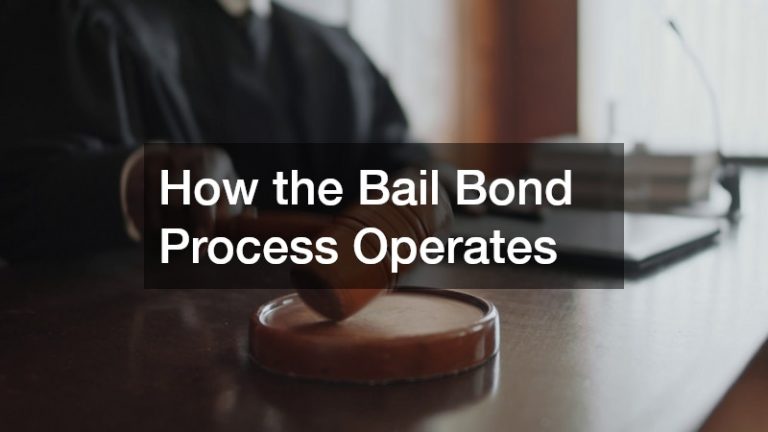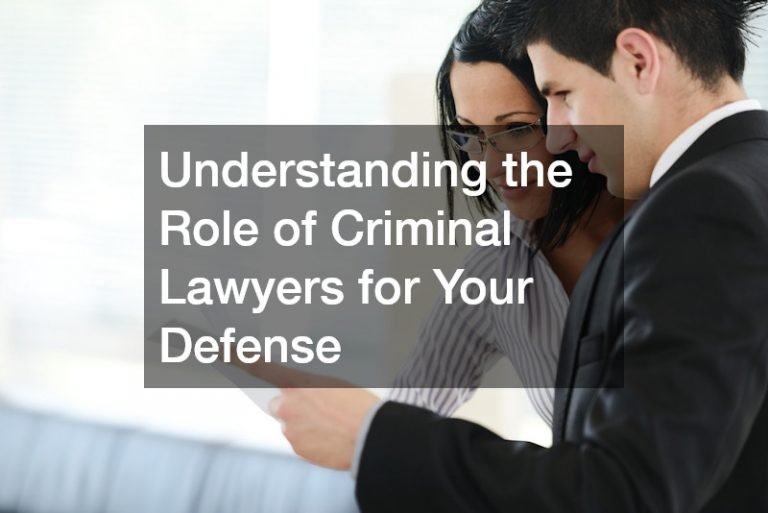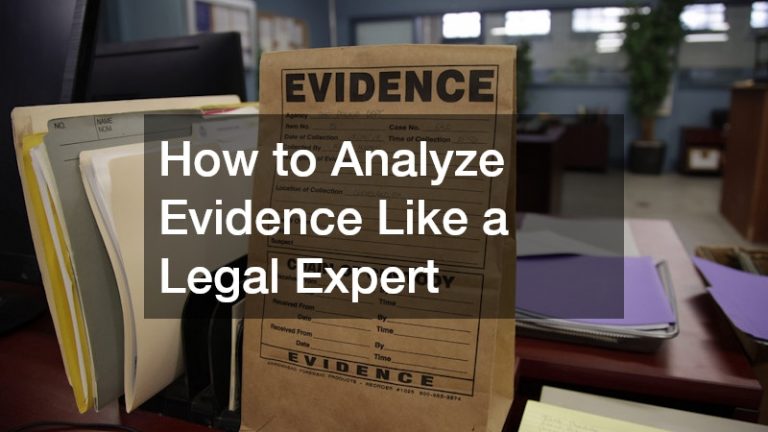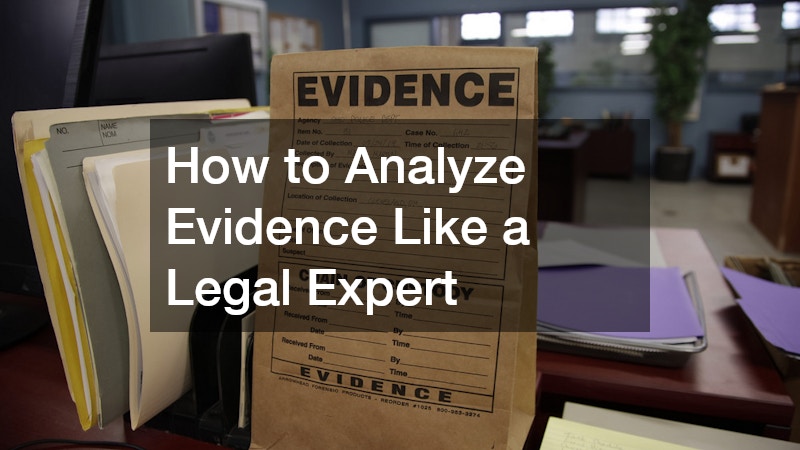
Grasping the nuances of analyzing evidence like a legal expert involves understanding legal principles, methodologies, and attention to detail. This article provides insights into how professionals meticulously assess evidence within a legal framework. Legal experts serve as the linchpins of justice, applying critical thinking and a systematic approach to evidence analysis to ensure fairness and truth prevail in judicial proceedings. Distinguishing between credible and non-credible evidence is a skill developed through rigorous training and practical experience. Mastery in this field is essential for ensuring that legal arguments are robust, compelling, and grounded in substantiated facts.
Understanding the Types of Evidence
Legal professionals categorize evidence into various types, each with its own set of rules and applications. A top criminal defense attorney will look at forms of evidence include physical, documentary, testimonial, and digital evidence, each playing a crucial role in painting a comprehensive picture of the case. Physical evidence, such as fingerprints or weapons, is tangible and often visually persuasive, providing substantial support to the factual matrix of a case. Documentary evidence encompasses contracts, letters, and reports, requiring careful scrutiny to establish authenticity and relevance. Testimonial evidence involves witness statements and expert opinions, which necessitate thorough evaluation to assess credibility and reliability.
Understanding the nuances between these types is essential for legal experts as each category demands distinct techniques for analysis and presentation in court. For instance, digital evidence, increasingly prevalent in today’s technologically advanced society, includes emails, social media posts, and metadata. Handling digital evidence requires specialized knowledge to prevent tampering and to ensure that it is admissible in court. The standards governing evidence types evolve with technological advancements, prompting legal professionals to continually update their skills and knowledge basis. By mastering the intricacies of different evidence forms, lawyers can effectively utilize them to support their legal arguments.
Evaluating the Relevance of Evidence
Relevance is a fundamental principle in evidence law, guiding legal experts in determining whether a piece of evidence aids in proving or disproving a legal issue. To ascertain relevance, lawyers must clearly understand the legal standards and burdens of proof applicable to the case. Irrelevant evidence can muddy the waters, distracting from the central issues and potentially confusing the judge or jury. Therefore, legal experts conduct meticulous reviews of the case facts to align evidence with legal arguments effectively. This process requires a nuanced understanding of the case context and the judicial objectives pursued.
The assessment of relevance is not just a binary evaluation but involves a detailed analysis of how each piece of evidence fits within the broader case narrative. Experts weigh whether the evidence directly supports or challenges a claim, as well as its potential to prejudice the outcome unfairly. Additionally, they consider the probative value versus any possible prejudicial impacts, adhering closely to legal precedents that define admissibility. By meticulously evaluating relevance, legal experts refine their focus, enhancing the persuasiveness and clarity of their case presentations. This disciplined approach ensures that the core legal issues remain at the forefront throughout the proceedings.
Using Evidence in Legal Argumentation
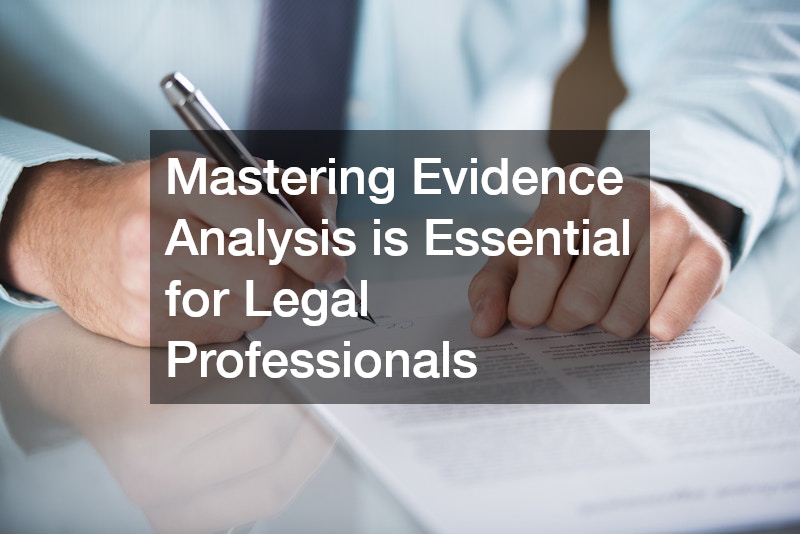
Once evidence is authenticated and deemed relevant, the pivotal task for a legal expert is incorporating it into their argumentation effectively. This involves crafting a narrative that seamlessly integrates facts, supported by evidence, substantiating legal claims and defenses. The art of persuasion in the courtroom hinges on the logical and coherent presentation of evidence, enhancing the credibility of legal arguments. An adept legal expert skillfully narrates how every piece of evidence contributes to their broader legal strategy, illuminating the truth behind contentious issues. Such compelling storytelling, grounded in evidence, is instrumental in swaying judicial opinions.
The strategic use of evidence requires careful planning and forethought, identifying the most impactful moments to introduce specific pieces to support legal arguments. Understanding the case dynamics, the opposing counsel’s tactics, and the judge’s likely viewpoints informs the timing and method of evidence presentation. Contradictions in opposing evidence or arguments provide opportunities for legal experts to showcase their analytical prowess and fortify their case stance. Effective evidence utilization demonstrates meticulous preparation and an intimate grasp of legal intricacies, enhancing the persuasiveness and strength of the legal argumentation. This level of expertise is often nurtured through years of experience and successful litigation.
Mastering evidence analysis is essential for legal professionals aiming to build compelling cases. By understanding the types, relevance, authentication, weight, and usage of evidence, one can effectively navigate the legal system and deliver justice. This analytical process underscores the importance of making informed decisions rooted in factual substantiation and legal precedents. Legal proficiency in evidence analysis translates into more effective client representation, ultimately advancing the cause of justice. As the legal landscape continues to evolve, especially with technological advancements, ongoing education and adaptability remain crucial for legal experts striving for excellence in evidence analysis.
Whether it is physical, documentary, testimonial, or digital evidence, each piece holds potential to impact the case resolution significantly. Lawyers must remain vigilant, always ready to adapt to new evidence standards, cutting-edge forensic practices, and evolving judicial expectations. It’s through a combination of analytical skill, legal knowledge, and strategic insight that legal experts effectively wield evidence to construct persuasive, justice-oriented arguments. This approach serves not only to benefit their current cases but also contributes to setting precedents for future legal interpretations and practices. Ultimately, the art of evidence analysis is a dynamic, ongoing quest for clarity and truth at the heart of the legal profession.



